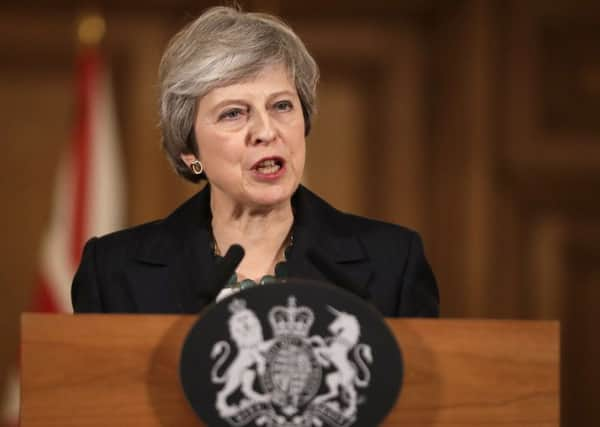The Yorkshire Post says: Geoffrey Boycott parallel can't bat away political reality for Theresa May on Brexit deal


“He stuck to it and got the runs in the end,” she said of the cricketer, before leaving a press conference in which she had insisted her much-derided Brexit withdrawal agreement remains the best option for the country. The parallel with a sportsman who made his name for an obdurate and unflashy style that eventually got results was undoubtedly a clever line but unfortunately for Mrs May, ignores the prevailing political reality of the last 24 hours.
The night before, after cabinet ministers had approved her draft agreement, Mrs May set out the three choices now ahead; implementing her deal, leaving with no deal or there being no Brexit at all. That choice rapidly appears to be narrowing to just the latter two options.
Advertisement
Hide AdAdvertisement
Hide AdMrs May described Cabinet’s agreement as “a decisive step which enables us to move on and finalise the deal in the days ahead” but from the moment Brexit Secretary Dominic Raab resigned just before 9am yesterday morning, it started to become apparent that her 585-page withdrawal agreement proposal is highly unlikely to ever become a reality.
Mr Raab’s resignation was followed by that of Work and Pensions Secretary Esther McVey, before Mrs May’s plan was condemned by all sides in the House of Commons as she was repeatedly told her intended deal, involving following many EU rules and regulations while having no say over them, would not get through Parliament. But in amongst the criticism, there was also an appreciation from several MPs that the Prime Minister has worked to deliver what she considers to be the best deal that can be achieved.
Her Boycottesque resilience was exemplified by the way in which she answered over 100 questions from MPs who veered between sympathy, anger and outright hostility.
The day’s dramatic events continued with Jacob Rees-Mogg submitting a letter of no confidence in the Prime Minister.
Advertisement
Hide AdAdvertisement
Hide AdBut Mrs May is correct that is her deal does fail, the alternative options are bleak. A second referendum, which would require the passing of Parliamentary legislation and EU agreement to extend the Article 50 process, would be a deeply divisive affair with a greatly-uncertain outcome.
The more likely ‘no deal’ scenario comes with no shortage of warnings about the potentially dire consequences would be. For the NHS alone, the British Medical Association has warned of “potentially catastrophic consequences for patients, the health workforce and services”, while Health Secretary Matt Hancock reportedly told Cabinet colleagues he “could not guarantee that people would not die” if access to medicines is hindered.
As the Government descends into chaos, the stakes for the coming months could not be higher.